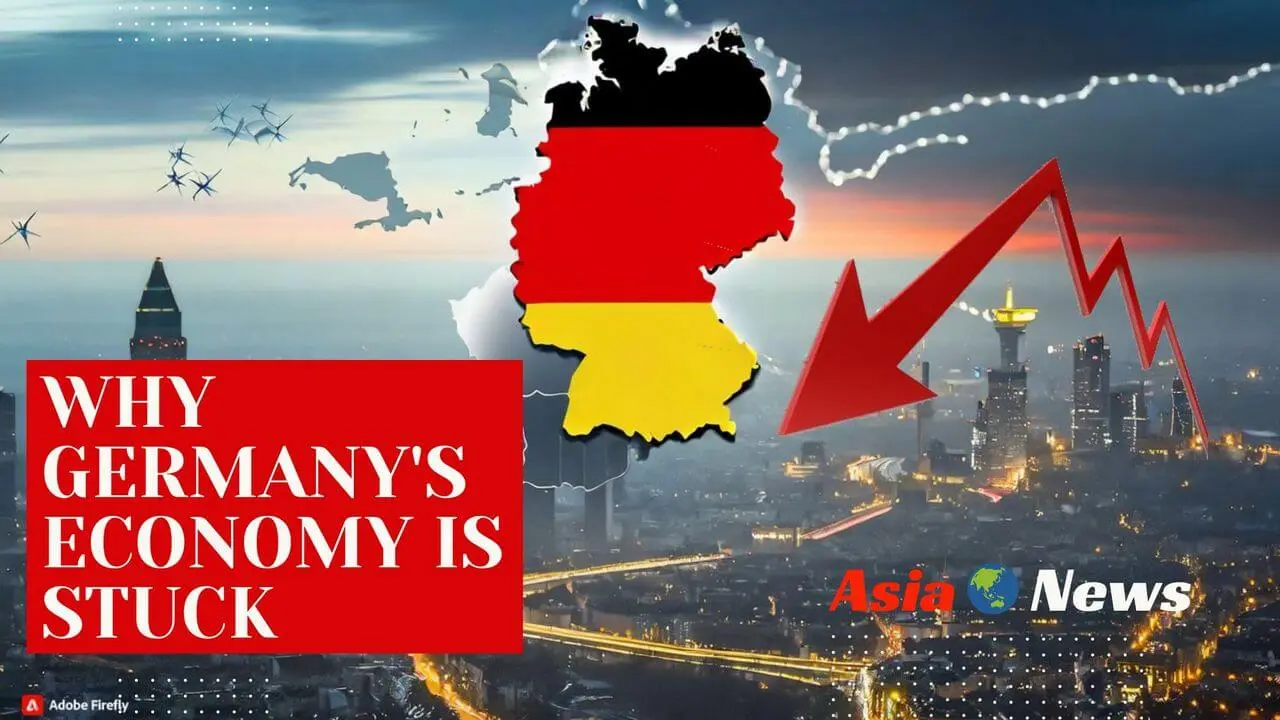Last updated on November 9th, 2023 at 05:05 pm
UK Economy News – The Decline of a Once-Mighty Empire: A Deep Dive into the UK’s Current Economic Challenges.
In the year 2000, the United Kingdom stood as a shining example of an advanced country, home to some of the world’s most renowned brands like Aston Martin, Vodafone, and BAE. It was the fourth-largest economy globally, with a GDP of a staggering $1.4 trillion, poised to overtake Germany and become the third-largest economy. Back then, it seemed like the British economic juggernaut had no brakes. However, let’s fast forward to the United Kingdom of 2023.
What is Going On With the UK’s Economy?
Today, the nation faces rising homelessness, skyrocketing inflation, millions of jobless citizens, and an increasing reliance on government welfare schemes. The UK’s economic landscape has drastically changed, and the outlook is anything but promising. To put it in perspective, the national debt now stands at a jaw-dropping $2 trillion, a staggering 99% of the entire UK’s GDP.
The manufacturing sector has shrunk by 20% since 2008, while the GDP has grown at a meager 3.8% annual rate for 23 years. The situation appears dire, and it seems like Britain’s economy is broken beyond repair. Let’s delve deeper into the reasons behind the UK’s potential economic meltdown.
Truly grisly assessment for the UK economy from the IMF this morning.
— Ed Conway (@EdConwaySky) January 31, 2023
– UK to fare worse than any other major economy this year
– worse even than Russia(!)
– Britain's downgrade came as most other countries saw their growth prospects upgraded
Full story:https://t.co/ATahkwWnqr pic.twitter.com/cRYaO5aa4P
Debt-Ridden Austerity
The seeds of the UK’s economic woes can be traced back to the 2008 financial crisis. Prior to the crisis, the UK had accumulated a substantial amount of public debt. This debt remained manageable as the economy was thriving, enabling the government to repay it. However, the financial crisis in 2008 led to a significant economic downturn, resulting in rising unemployment and falling tax revenues. As a consequence, the UK grappled with massive budget deficits for many years.
UK Net debt passes 100% of GDP for first time since 1961 | Business News – The Indian Express
UK Economy News 2023

In 2009, the deficit had surged to a staggering 11.2% of GDP, the highest level since World War II. To combat these massive debt levels, the British government implemented a series of austerity measures, including cuts to public spending, tax increases, and a freeze on public sector pay. Paradoxically, austerity measures intended to stabilize the economy led to a reduction in demand, as both consumers and businesses had less money to spend. Austerity also made it more expensive for the government to borrow further funds and invest in the economy.
The post-2008 budget deficits were so substantial that it would have taken at least two decades for austerity to significantly reduce them. Before this could happen, the COVID-19 pandemic struck, forcing the UK government to borrow even more money at higher costs to support the economy and welfare schemes. The situation worsened, with the budget deficit reaching a jaw-dropping 15% in 2021. While it has since decreased to 5.4% in 2023, it remains alarmingly high.
De-Industrialization and Low Productivity
Once a manufacturing powerhouse, the UK has seen its manufacturing sector shrink by a massive 20% since 2008, surpassing declines in any other G7 country. This rapid de-industrialization has resulted in the loss of at least 3 million manufacturing jobs in the UK since 1997. The decline in consumption of goods due to job losses has further reduced demand in the UK’s economy.
The reduction in the tax base due to job losses has led to lower tax collections for the UK government. Moreover, the remaining industries in the UK face significant productivity issues, with UK productivity being 17% lower than the G7 average. This means that UK workers produce less output per hour compared to their counterparts in other countries. This places UK businesses at a competitive disadvantage, causing them to lose market share to foreign competitors, resulting in a decline in exports and a rise in imports. A weaker British pound exacerbates this situation, discouraging businesses from staying in the UK.
UK economy to fare worse than any other country in developed world this year, IMF forecasts
UK Economy News 2023
The UK Economy now finds itself in a challenging situation from which it may struggle to escape.
How has Brexit affected the UK economy?
Brexit, the UK’s decision to leave the European Union, has had profound economic repercussions. The UK’s GDP growth rate averaged 2.1% in the five years before the 2016 referendum, but it has dwindled to a mere 0.6% in the five years following the referendum. The uncertainty and instability that Brexit brought to businesses caused many to delay or cancel further investments in the UK.
In 2019, just one year before Brexit, investments in the UK Economy were worth £209 billion, but by 2021, this figure had dropped to £176 billion. Brexit has also made trading with Europe more expensive for UK businesses. UK-EU trade, which was worth £668 billion in 2018, had fallen to £544 billion by 2022. The departure from the EU has also resulted in a substantial loss of jobs, as businesses either fully or partially relocated to avoid potential cost hikes and tariffs. While the full impact of Brexit remains to be seen, it is undeniable that it has already taken a toll on the UK economy.
Cost of Living Crisis
The aftereffects of the factors mentioned so far have given rise to a severe cost of living crisis in the UK. Public debt, lack of public investment, Brexit, COVID-19, austerity, falling exports, rising imports, and a dwindling manufacturing sector have combined to create a perfect storm of economic challenges. One of the most visible effects is the soaring energy bills, with the average household’s energy costs predicted to reach £2,600 per year in 2023, marking a 54% increase since April 2022.
In addition to energy bills, food prices have also witnessed alarming inflation. Food inflation in the UK hit a record level of 99.8% in August 2023, the highest in over four decades. The cost of housing is another significant concern, with the average house price in the UK reaching £420,000, representing a 9% increase in just one year.
Conclusion: The Picture Is Foggy
The United Kingdom, once an empire on which the sun never set, now stands at a critical juncture in its history. The economic challenges it faces are complex and multifaceted, spanning from high public debt and austerity measures to the repercussions of Brexit and a growing cost of living crisis. Whether the UK can overcome these daunting challenges remains uncertain, and only time will tell if this empire can regain its former economic glory.
Also Read: Giorgia Meloni Announces End of 10-Year Relationship with Andrea Giambruno
FAQ:
Can the UK’s economy recover from its current predicament?
While recovery is possible, it will require a concerted effort and a multi-faceted approach. Addressing public debt, boosting public investment, and mitigating the effects of Brexit are crucial steps. However, the road to recovery may be long and challenging.
What role does the manufacturing sector play in the UK’s economic troubles?
The decline of the manufacturing sector has contributed to job losses, reduced demand for goods, and a weakened tax base. This, in turn, has negatively impacted the UK’s economic stability.
How has Brexit affected the UK’s economy?
Brexit has led to decreased GDP growth, reduced investments, and increased trade costs with the European Union. It has also caused uncertainty among businesses, resulting in a loss of jobs and investment.
What measures can be taken to alleviate the cost of living crisis in the UK?
To address the cost of living crisis, the UK government can implement policies to control energy prices, curb food inflation, and potentially increase housing affordability through targeted initiatives and incentives.
What are the key challenges that the UK must overcome to rebuild its economy?
The UK must tackle public debt, invest in infrastructure, strengthen its manufacturing sector, and navigate the post-Brexit economic landscape. Additionally, addressing the cost of living crisis is paramount to ensuring economic recovery and stability.






